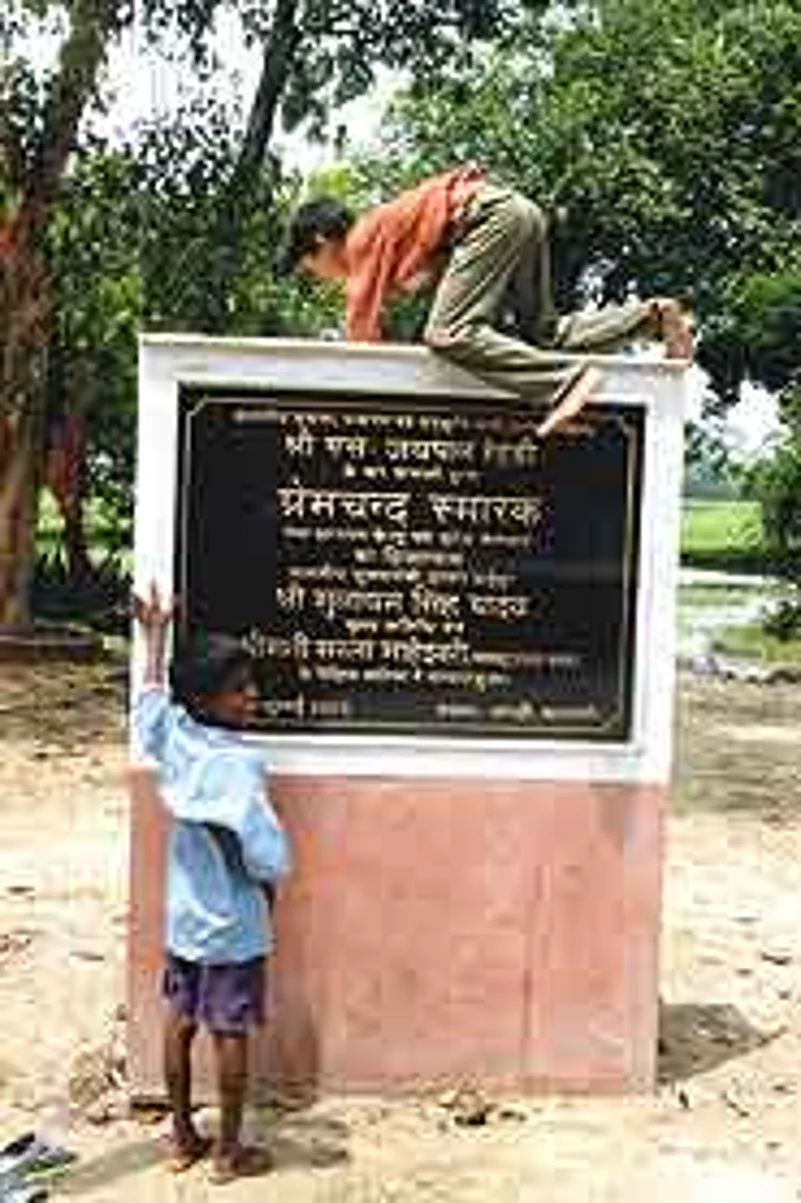Hori Was Here
The writer's 125th anniversary has officialdom in a tizzy. But will it last the ride?



But what about the anniversary celebrations and the transformation of Lamahi? The committee set up by the Centre has proposed an auditorium, a centre for research which will have the authentic version of the author's collected works, a museum of moving images, year-long seminars on Premchand and a website named after the author. While the committee has not worked out the budget, Alok Rai, Premchand's grandson, says work will begin soon. But it may not be all smooth sailing. Already, members of Sahmat, a left-leaning cultural organisation, which had pressurised the government to observe the anniversary from July 31, 2004, (but reconciled to celebrating the event after a year), is unhappy at attempts to "jazz" up an otherwise solemn occasion. Sahmat members wonder how intellectual activity can be sustained in Lamahi. They feel Premchand's plays should be staged all over the country instead of localising it in Lamahi. The July 31 function itself didn't go down well with the literary heavyweights present. For one, they were left hanging for 5-6 hours as Mulayam was delayed for the inaugural. Noted litterateur Rajendra Yadav was extremely upset. "It appeared to be a political show. I had reminded Mulayam that the date should not be reduced to a mere event. Two years from now, there should be visible signs of progress. I have written to the CM requesting him to ensure that money is not frittered away," says the writer.
Noted theatre director M.K. Raina is another one who says he's lost all enthusiasm for the project. "The committee has no clear objectives. Why should discussion on Premchand be confined to English, Urdu and Hindi in the seminars being held in some parts of the country? He had a national appeal, which is not being addressed by the committee." Also, Raina points out, while there were discussions on making a film on Premchand, it was abandoned as no dates were set for its completion. "I was invited to Lamahi but chose not to go," says Raina.
So it seems that even before plans moved from the drawing board, there are glitches at hand. Lal Ji Rai himself cautions that work can take place only on a proper proposal from the Centre. "We can begin the process of acquisition of land once the Centre is clear about what they want to do," he says. Right now, the ramshackle two-storeyed haveli where Premchand lived is withering under the weight of time. Robbed of its former shine, its walls are crumbling even as the road that leads up to it basks in the warm glow of 10 halogen bulbs which came to life on July 31. Back in 1959, India's first President Rajendra Prasad laid a foundation stone here which held the promise of restoration and renewal. That stone gathered moss and vanished a few years later.

Anticipating problems in renovating Premchand's ancestral home—currently under dispute between the Nagaripracharani Sabha, a literary organisation, and Premchand's nephew Krishna Kumar Rai—the district administration is already weighing its options on acquiring land adjacent to the property to build a home worthy of the writer. The problems facing the administration are two-fold. Premchand's ancestral home has two sections, one where the writer was born and the other where he chose towrite. While the place of his birth was donated to the Nagaripracharani Sabha, the writer's workplace is in the hands of the immediate family members. According to Krishna Kumar Rai, "The property was handed over to the Sabha in good faith in 1959, but the organisation did nothing to maintain it...it has crumbled with time". It is this portion that is coming in the way of the state's plan to renovate. "The Sabha," says the CDO, "has been reluctant to part with its portion. If the organisation continues to resist, we have to work out an alternative plan." The alternative plan: acquire land from the villagers and build a home which is an exact copy of the original!
The villagers, of course, are worked up over this 'alternative' plan. As the oldest member of the village, Ram Moorat Ram, says wryly, "I hope there is no repeat of Gaban." Gaban, as readers of Premchand would know, is a complex tale of embezzlement by a young man brought to the brink by his beautiful wife's craving for jewellery. The villagers hope they will not share the same fate, that too in the name of Premchand, a writer who empathised with the poor.















